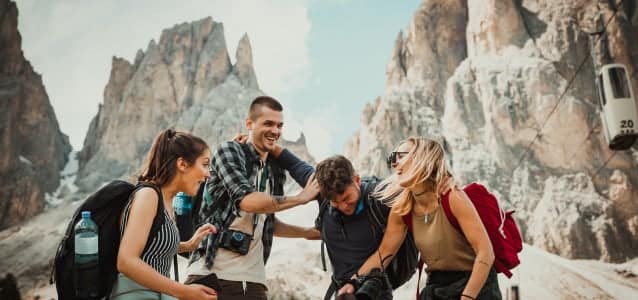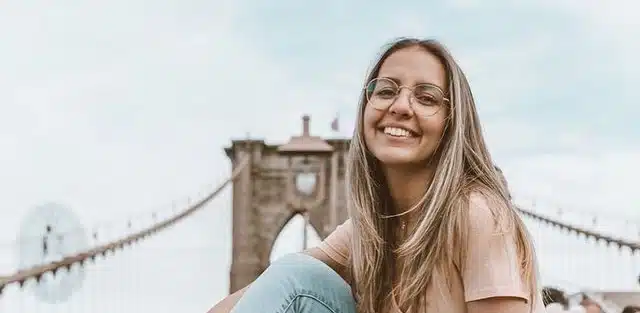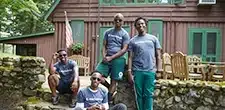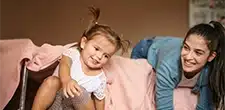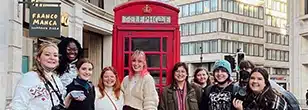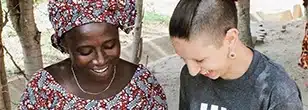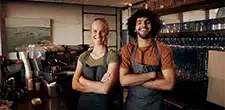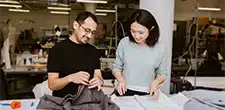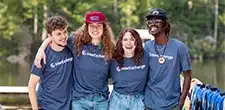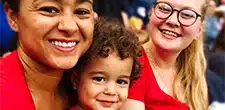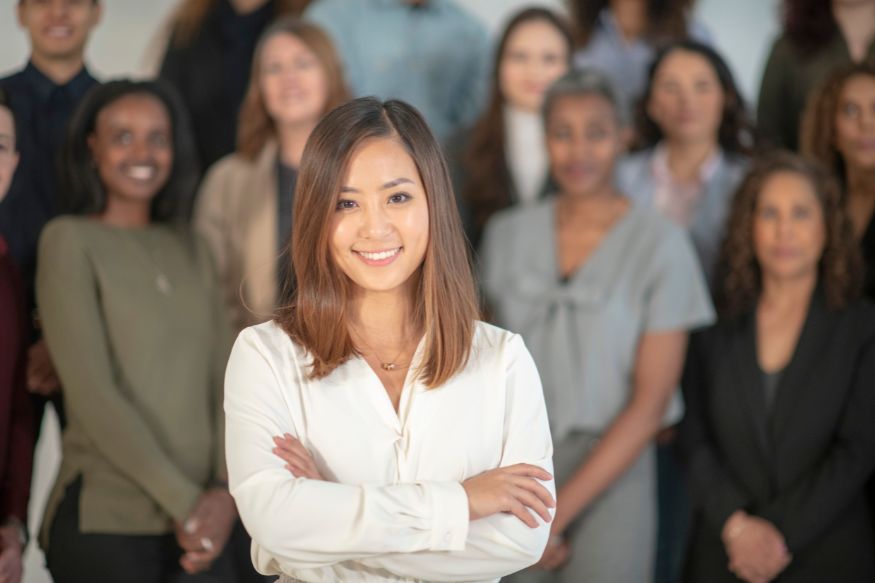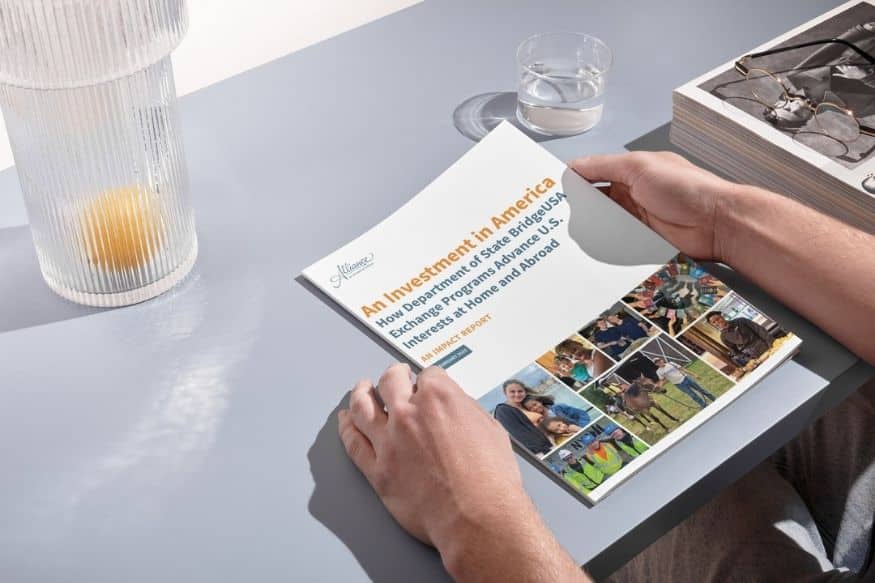For refugees in Bulgaria, rebuilding their lives is a daunting task. The country lacks a systematic process of integration, rendering social services inadequate. Migrants are also vulnerable to human trafficking. Since the fall of communism, socio-economic factors in the Eastern European nation have created fertile ground for organized crime and exploitation.
Recent University of Chicago graduate Madeline de Figueiredo will spend eight months in Sofia, the capital of Bulgaria, with the Center for Legal Aid-Voice Bulgaria (CLA) to identify and fill in gaps in refugee services. The Sofia Refugee Project aims to provide legal aid, health care, language courses, and other resources to 150 Syrian and Iraqi refugees in the capital.
Using her Arabic skills and experience working with Syrian refugees in Chicago, Madeline will interview refugees and coordinate with other nonprofit organizations in the area to address the newcomers’ needs.
“I look forward to building relationships with refugee communities in Sofia, learning from professionals in the field, and experiencing a new place and culture. I’m so grateful for the InterExchange Foundation Christianson Fellowship and the extraordinary opportunity they have offered me,” Madeline said.
Madeline is joined by two other young women embarking on social impact projects in South America. The InterExchange Foundation awarded more than $25,000 in Christianson Fellowships to this first cohort of 2019 grantees! Read on to learn more about their inspiring projects.
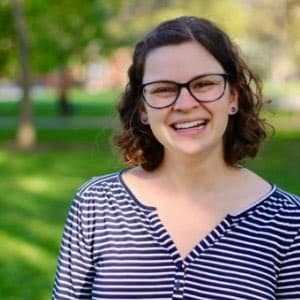
Madeline de Figueiredo
Helping refugees rebuild their lives
Sofia, Bulgaria
Chapel Hill, North Carolina
University of Chicago
Given its strategic location in the southeastern corner of the European Union, Bulgaria has seen a surge in migration in recent years. Lacking a systematic process to integrate refugees, many migrants face a tough road trying to rebuild their lives, while also avoiding the dangers of human trafficking.
After perfecting her Arabic in Morocco and volunteering with two refugee resettlement organizations in Chicago—Sirat Chicago and Syrian Community Network in Chicago—Madeline wanted to apply her skills and experience to help a refugee population abroad.
Learn More
The Center for Legal-Aid Voice Bulgaria (CLA) is one of the nonprofit organizations seeking to fill the gaps in social services for this vulnerable group. Their Sofia Refugee Project caters specifically to Syrian and Iraqi refugees. After identifying needs through interviews, Madeline will help match refugees to much-needed resources.
“Bulgaria is a nation without a history of immigration, as until 1989 it was behind the Iron Curtain and immigration and emigration flows were strictly regulated. Therefore, a systemic national integration schema is still a work in progress, and no state-led efforts to integrate refugees specifically are extant.”
The country also lacks systematic anti-trafficking procedures and Madeline hopes her project with CLA will help diminish refugee vulnerability.
Madeline fills a vital need at CLA. Without her service, the organization wouldn’t have the personnel to see the Sofia Refugee Project through. Madeline’s presence, supported by an InterExchange Foundation Christianson Fellowship, gave the project life, and the United Nations High Commissioner for Refugees recently agreed to donate extra materials to accommodate more refugees.
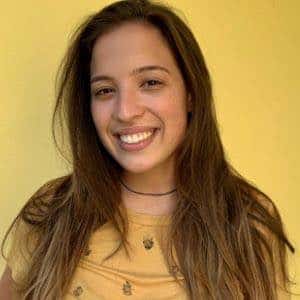
Gabriela Pages
Fighting and treating tuberculosis
Lima, Peru
Miami Beach, Florida
University of Miami
According to the World Health Organization (WHO), tuberculosis kills 5,000 people every day. In a frightening development, there is now an antibiotic-resistant strain. The WHO recently stated that antibiotic resistance is one of the biggest threats to global health. That’s why Gabriela Pages’s project to help fight TB and its drug-resistant form is so vital.
Learn More
Gabriela will spend one year volunteering with Socios En Salud (SES), a sister organization of the U.S.-based Partners In Health (PIH) and one of the largest healthcare nonprofits in Peru. Since 1996, SES has helped TB patients in impoverished areas of Lima and played a significant role in reducing drug prices for multi-drug resistant TB.
Gabriela will apply her educational background in public health and Spanish fluency to support SES’s first-ever, TB mobile-screening vehicle project: TB Móvil. Community members receive chest x-rays and sputum tests (phlegm from lungs collected through coughing) to identify TB and the particular strain.
“This vehicle is using state-of-the-art technology and is marking a major milestone for PIH’s and Peru’s fight against TB, the leading infectious killer of adults in the world.,” Gabriela told us. “Due to advanced radiography and GeneXpert machines, results are delivered in minutes. These technologies would otherwise be unavailable to impoverished patients.”
TB Móvil will bring rapid testing closer to where people live, in order to identify and treat TB and its drug-resistant form, in three northern districts of Peru. The project aims to prevent patients from spreading the disease and ensure they receive early treatment.
“I’m excited to embark on my journey to further the fight against multi-drug-resistant tuberculosis in Peru, and continue the mission of the founders of Partners In Health in advancing the right-to-health movement.”
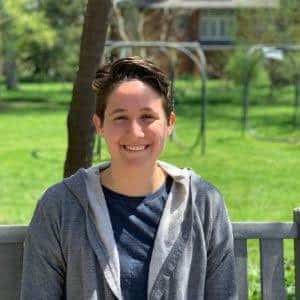
Mariel Lutz
Increasing water security and promoting sustainable usage
Santiago, Chile
Brighton, Massachusetts
Washington University in St. Louis
Located in central Chile, the Maipo River Basin covers almost the entire Santiago Metropolitan Region and is an important source of drinking water. According to The Nature Conservancy—an international nonprofit whose mission is to conserve the natural lands and waters on which all life depends—less than one percent of the basin’s habitat is under formal protection and it’s in danger of losing 40% of its water by 2070 due to climate change. Alarming in itself, this is also a call to action because 50% of the national GDP is produced here and it’s where 40% of the population calls home.
Learn More
Mariel Lutz a recent graduate of Washington University in St. Louis, will apply her environmental biology education and environmental field station experience to help protect this vital natural resource.
Her seven-month project with The Nature Conservancy is two-fold: 1) A Water Funds Project, a partnership with local actors to sustainably manage the basin, and 2) A Water Replenishment Project, helping companies effectively restore the water.
For the Water Funds project, Mariel will collect scientific evidence to support the necessity of water security and determine which part of the land is best to protect.
“The basic idea is that you protect the land around the water so you don’t have to do anything to treat the water directly and you save money later on.,”
She’ll then help form a collective of partners with a shared view on how to implement meaningful water security. The replenishment project will entail helping private companies develop projects to protect the water and minimize their usage.
Mariel will also engage the local community in conservation activities and work with The Nature Conservancy’s fieldwork team on reforestation efforts and constructing protective infrastructure.
“I’m thrilled that I will get to use my skills in the environmental field to help provide clean drinking water to the people of Santiago, and that I will get to do so in Chile, a country I have wanted to travel to for many years. The Christianson Fellowship has made this dream a reality and I am so thankful for the incredible opportunity they have provided me.”
The Christianson Fellowship is awarded to U.S. citizens between 18 and 28 who have independently arranged a service project abroad for at least six months. Selected grantees receive up to $10,000 in funding.

